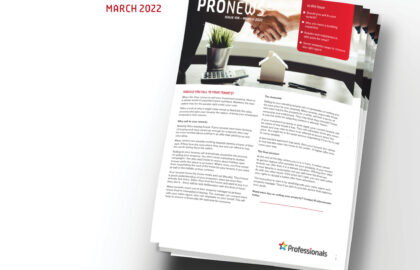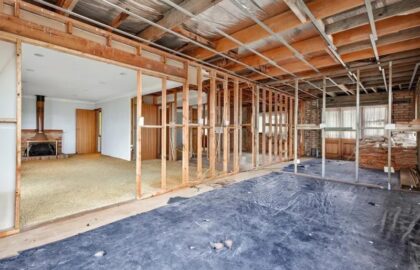
Is Australia’s property bubble set to burst?
Australians love to talk about ‘property bubbles’, debating whether or not we are in one and how long it will be until it bursts.
The concept is definitely a hot topic right now, particularly after prices rose so dramatically during the pandemic. Demand has been high, supply low and money ‘cheap’, so buyers have been increasing their offers to secure property.
But are we seeing a bubble that is about to burst? The trouble is that it’s hard to know whether there is in fact a property bubble until it actually ‘pops’.
Property bubble or not, there are signs that the rapid increase in property prices is set to slow at the very least. Here’s a roundup of what has happened in 2021 and what may come next:
How did we get here?
In November 2020, the Reserve Bank of Australia (RBA) set interest rates at an all-time low of 0.1%. The goal of this was to help people who may have been losing income due to the pandemic to be able to maintain their home repayments. As a result, home loans became more affordable than ever. Buyers were happy to take out loans that may have frightened them off a few years ago and sellers happily accepted the high offers that result from low interest rates.
Add to this the lack of supply and increase in demand and house prices climbed dramatically in 2021. The peak price rise was an average of 2.8% in March, which was the fastest pace seen in over 30 years.
However, those huge price jumps are now beginning to plateau.
What’s changed?
Although the Reserve Bank has resisted raising interest rates so far and intends to keep them low for the foreseeable future, pressure is rising to make property more affordable. Part of this pressure comes from new home loan rules recently set down by APRA. The 0.5 percentage point increase on the minimum interest rate buffer on home loan applications has reduced the maximum buyers can borrow by around 5%. This is all in a bid to make sure home buyers aren’t overwhelmed by their monthly repayments when interest rates rise.
In other words, you can now only borrow money if you prove you can continue repayments after interest rates rise. The flow on of this is reduced borrowing power and lower offers being made on homes.
Meanwhile, the number of houses on the market has started to increase. Reports say new listings surged Australia-wide by 47 per cent since the recent low in September.
Is there a property bubble or not?
Whether there’s a bubble or not seems to be up to who you ask and where you live. The general consensus is that, even when things do slow down, property prices won’t crash to catastrophic lows as there will still be competition between buyers to buy quality homes in sought after areas. It is likely to be more of an evening-out than a freefall.
With that being said, if you are considering selling and you do want top dollar, it’s a good time to get moving on your decision. Prices are likely to hold strong through summer and autumn but may begin to flatten further as we enter next winter.
To get the best price for your property, whenever you choose to sell, you need the help of an experienced local agent who knows the market and will help you achieve the best price with as little stress as possible.







